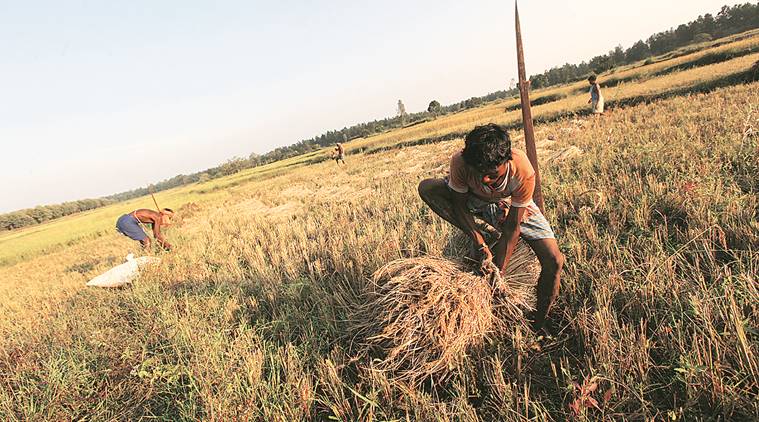Agriculture needs long-term action beyond financial support packages
PM-Kisan & similar schemes can cause more harm than good without durable farm sector reforms and development of complementary marketing infrastructure

The Pradhan Mantri Kisan Samman Nidhi (PM-KISAN) scheme provides financial support of Rs 6,000 annually, payable in three equal installments to every farmer owning up to two hectares of agricultural land. Telangana had earlier pioneered a similar intervention through its Rythu Bandhu scheme giving farmer-owners Rs 8,000 per acre per year. Odisha’s Krushak Assistance for Livelihood and Income Augmentation or KALIA scheme widened the package (Rs 10,000-12,500 annual support per family) to include even share-croppers and landless agricultural households.
Strikingly, no ruling party, however, has evinced adequate interest in addressing the root of the problems confronting the farming community.
Strikingly, no ruling party, however, has evinced adequate interest in addressing the root of the problems confronting the farming community.
Food security is a sine qua non for national security, and also the reason for humongous farm subsidies being provided in most developed and even some developing countries. There can be no disagreement that our farmers deserve a better deal. Successive governments, in order to enhance foodgrain production, have made large investments in irrigation, subsidised farm inputs, and provided minimum support price (MSP) support for procurement of marketable surpluses. At the time of Independence, India produced a mere 50 million tonnes of foodgrains for a population of about 350 million, and had to resort to foreign food aid. After seven decades, despite population growing by nearly four times, the country is foodgrain-surplus, with production having increased by six times.
It would be a travesty of truth to say that the farm sector is under greater stress today than in the past. While the visibility of distress is definitely more now due to increased media coverage, critical issues get side-tracked, allowing ruling parties to get away with just announcing relief packages whenever elections draw near. Without durable farm sector reforms and development of complementary marketing infrastructure, the situation can, in fact, deteriorate. Even if intentions of governments are noble, their so-called financial support packages may cause more harm than good in the longer run.
What could make things worse, more so in eastern India, are laws that have rendered share-cropping illegal. Since these laws have been sanitised by making them beyond judicial review, states agencies generally shy away from capturing share-cropping data, as its large-scale prevalence would expose the owners as absentee landlords. Given this legal architecture, it would be interesting to see how Odisha implements KALIA, having officially recognised illegal entities called share-croppers as eligible for state subsidy. Further, involving Gram Panchayats in identifying eligible beneficiaries might lead to the scheme’s politicisation and decentralising corrupt practices.
Implementation of financial support packages is complicated by land records, whose updation has never been prioritised in most states. Absentee landlords have two options. First, forego acknowledging share-cropping, since creation of data records of tenants to enable financial support might weaken their legitimacy of ownership. This would, then, be double jeopardy for share-croppers, already subsisting at the mercy of their landlords. Second, they could claim the financial assistance for themselves, which may even be more than their returns from share-croppers. In coastal Odisha, lakhs of acres of fertile agricultural land are currently left fallow due to low productivity and expensive labour. The incentive to leave lands fallow might only go up now.
Ruling parties have also been announcing farm loan waivers and hiking MSPs. About three-fourths of crop loans are extended by cooperative banks, which have had a positive impact in Gujarat and Maharashtra. But in most other states, rain-fed agriculture has rarely drawn serious attention of either the cooperatives or commercial banks. In many cases, agricultural loans are paper transactions, with subsistence farmers even unaware of the outstanding dues against them. Loan waiver exercises largely enrich undeserving individuals or entities faking transactions. The lower incidence of suicides among stressed farmers in eastern states could, perhaps, even be due to their non-eligibility for institutional credit (and being dependent mainly on local money-lenders) or blissful ignorance of their fabricated loan liabilities. Resource-poor farmers are generally voiceless and incapable of undertaking aggressive forms of protests. As regards MSPs, they not only lack legal basis, but also extend only to a limited range of crops. Farmer suicides, moreover, aren’t necessarily relatable to the crops for which MSPs exist. Farmers producing seasonal fruits and vegetables suffer, whenever there is a bumper harvest and there is no MSP protection for them.










.png)




























No hay comentarios:
Publicar un comentario